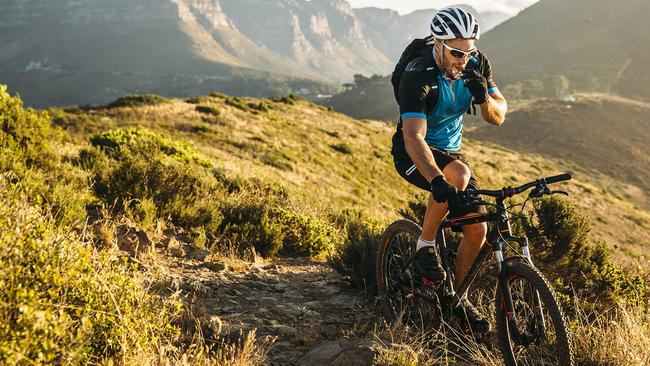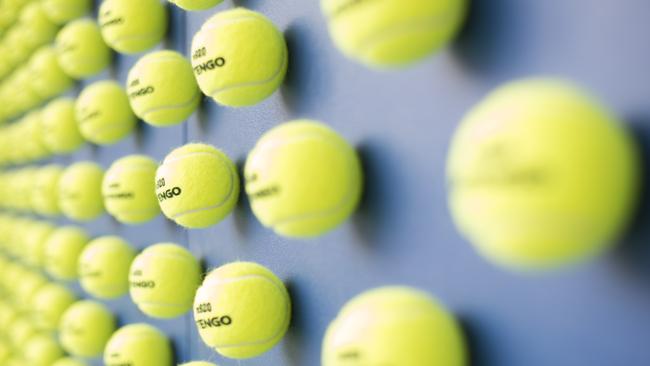Decathlon gears up to take on Rebel, Amart Sports
A FRENCH company dubbed the Aldi of sporting equipment is about to put Rebel through its paces in the $1.3 billion Australian market.

A FRENCH juggernaut dubbed the Aldi of sportswear is about to put Rebel and Amart Sports through their paces in the $1.3 billion sporting equipment market.
Decathlon, which launched its Australian website last month, is expected to open its first two large-format physical stores by the end of the year, most likely in the outer suburbs of Sydney and Melbourne.
The French company has more than 1000 stores in nearly 30 countries and employs 70,000 people. Its turnover in 2015 was $14 billion (9.1 billion euros). The majority of its international stores are in China, followed by Spain and Italy.
Much like Aldi, Decathlon specialises in selling private label items, which make up around 60 per cent of its sales. Its 20 ‘passion brands’ are designed and tested in-house by a team of 50 researchers.
According to consumer research company Roy Morgan, 734,000 Australians bought sporting equipment — not including sportswear or footwear — in an average four weeks in the 12 months to March 2016, spending a combined $1.33 billion over the year.
Rebel Sport is the dominant chain, claiming $254 million, or 19 per cent of the market. Customers spent $50 million (4 per cent) at Amart All Sports, $48 million (4 per cent) at Sports Power, $44 million (3 per cent) at Kmart and $24 million (2 per cent) at Big W.
The other 68 per cent of the market, worth $583 million, is made up by many bricks-and-mortar and online stores that each hold less than 2 per cent. Those include specialty stores such as Sportsco and Stadium Sports to Aldi, Anaconda, Target, eBay and DealsDirect.
Super Retail Group, which owns both Rebel and Amart, stands to lose the most from Decathlon’s entry into the local market.
“The arrival of Decathlon will no doubt shake the sporting goods and apparel market,” Roy Morgan chief executive Michele Levine said.
“It is known as ‘category killer’. However, while Decathlon may be well-regarded for providing excellent customer service, so too is Rebel Sport. The homegrown retailer took out the 2015 Roy Morgan Customer Satisfaction Award for Sports Store of the Year.”
Australians spent far more on sporting apparel than sporting equipment — $2.5 billion on sports shoes and $1.5 billion on sportswear.
Ms Levine said Rebel held a strong position in both these categories, but overall was not quite as strong in sporting equipment alone.

“Our granular consumer research across specific products shows that Rebel’s market position is also stronger among men than women,” she said.
“It holds 21 per cent of the men’s sportswear and 10 per cent of men’s footwear markets, compared with 12 per cent of women’s sportswear and 6 per cent of women’s sports footwear.”
Last month, Citi retail analyst Craig Woolford warned Super Retail could lose 4 per cent of its revenue and 7 per cent of its before-tax earnings within the decade, with price competition from Decathlon further eroding margins in the sector.
A price survey comparing Amart with Decathlon found Amart was often cheaper in sporting equipment, but Decathlon had much lower prices for private label apparel items.
Mr Woolford found Decathlon’s private label offering was between 50 to 70 per cent cheaper than the lowest-cost branded product, posing a bigger threat to discount department stores such as Kmart and Big W than to Amart.
“The price difference between Decathlon and Amart is less pronounced in the sporting equipment category, especially when private label offerings are compared,” he wrote.
“On entry level private label sporting equipment, Decathlon was more expensive than Amart. Furthermore, we observed more generic sporting equipment such as golf balls, dumbbells and shin pads as cheaper at Amart for branded goods than the alternative private label offering at Decathlon.”
Overall, the slow store rollout will mean any impact on Australian retailers will be gradual, he said, and the lack of branded products may slow the ramp-up.
Decathlon’s warehouse-style stores, twice the size of Rebel and Amart stores, may also prove a challenge. Mr Woolford noted that for large-format retailers, the supply of sites in good-quality, high population areas is scarce.
“Securing good sites is central to the success of any retailer,” he wrote. “The company has stated that it is focusing on sites located in large format precincts in the outer suburbs of Sydney and Melbourne.”
Given these centres are away from major shopping precincts, he predicts limited direct competition with Rebel but more risk of direct competition with Amart.
“Rebel has a balanced store portfolio, with a skew towards the larger states of NSW and Victoria,” he wrote.
“Amart has an East Coast bias, with half its stores focused on the Queensland market. As a result of this focus, we expect the initial impact of Decathlon’s entry into Australia will likely be small for Amart and the Super Retail Sport segment.”




